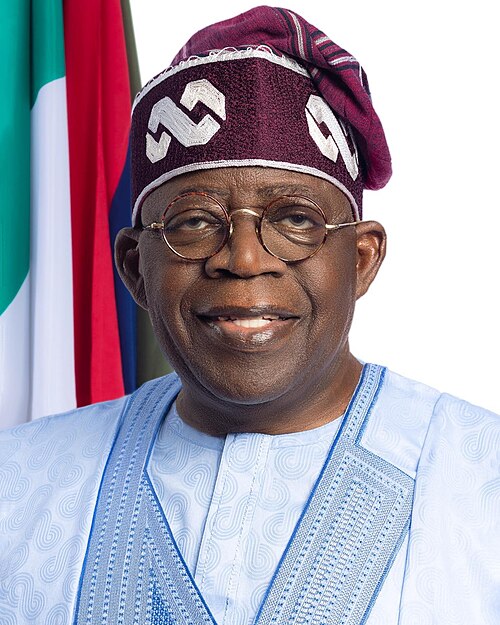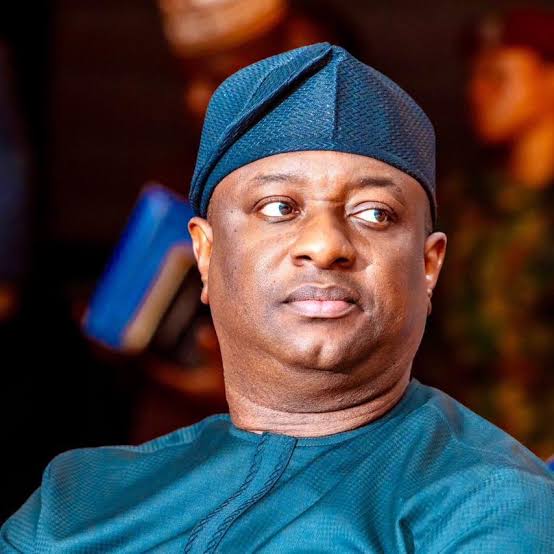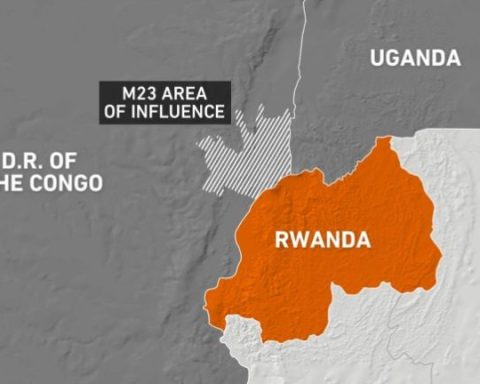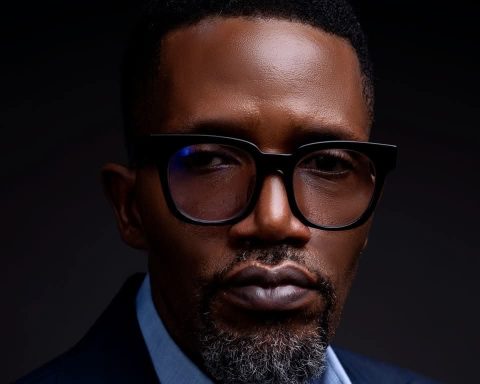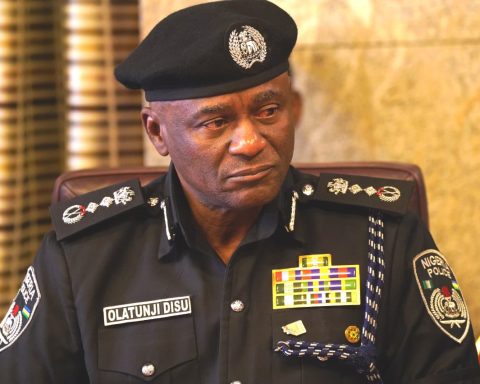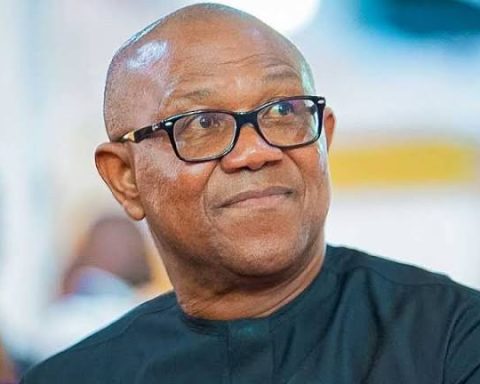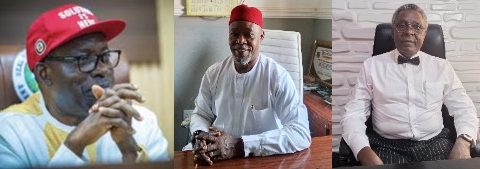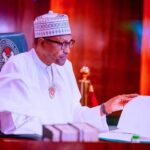The Federal Government on Sunday pushed back against mounting criticism that President Tinubu is skewing federal infrastructure in favour of the South-West, insisting that his administration has pursued equity in the allocation of projects and opportunities.
In a strongly worded statement, Minister of Information and National Orientation, Mohammed Idris, described the allegations as “half-truths and fake information,” stressing that the President’s decisions are guided by fairness, justice and balance.
Join our WhatsApp ChannelHe maintained that major projects in transport, energy, and health are being executed simultaneously across all six geopolitical zones.
“President Tinubu is building national infrastructure, not local trophies. No region is ignored, and all are receiving fair consideration,” Idris declared.
According to him, ongoing projects cover highways, bridges, rail lines, and power plants across the federation, with funding already secured for major light rail projects in Kano (₦150 billion) and Kaduna (₦100 billion). Rehabilitation of over 1,000 primary health care centres has also been completed nationwide.
Data on Project Distribution
Official figures released by the Presidency show that the Northwest leads in project approvals, followed by the South-South:
- Northwest: ₦5.97 trillion (over 40% of approvals)
- South-South: ₦2.41 trillion
- North-Central: ₦1.13 trillion
- South-East: ₦407 billion
- North-East: ₦400 billion
- South-West (excluding Lagos): ₦604 billion
Idris noted that while the Lagos-Calabar Coastal Highway has attracted attention in the South, the 1,068km Sokoto–Badagry Superhighway and the Abuja–Kaduna–Kano dualisation are equally massive interventions in the North. The government also highlighted ongoing works on the Trans-Sahara Highway in Ebonyi, the Port Harcourt–Maiduguri Eastern Corridor rail line, and the revival of the 255MW Kaduna Power Plant.
READ ALSO: Stop 2027 Politics, Fix Nigeria’s Crises Now, HURIWA Tells Keyamo, Ministers
Trump’s Administration Faces Security Scandal As Journalist Leaks War Plans
Major Projects by Region
- North: Sokoto–Gusau–Funtua–Zaria dualisation (₦824bn), Abuja–Kaduna–Kano Road (₦764bn), Kano Northern Bypass, Bama–Dikwa Roads in Borno, Damaturu–Maiduguri Road, among others.
- South: Lagos–Ibadan Expressway, Oyo–Ogbomoso–Ilorin Road (₦146bn), rehabilitation of Carter, Third Mainland, and Eko Bridges (₦120bn).
- South-East & South-South: Enugu–Onitsha dualisation via MTN Tax Credit (₦202bn), 2nd Niger Bridge Access Road, Eleme–Onne Road (₦156bn), Nembe–Brass Road (₦150bn), and the Bodo–Bonny Road in Rivers (₦200bn).
Beyond roads, the Presidency said three oil wells have been drilled in Bauchi and Gombe States, while the Kano–Maradi rail line, inherited at 5%, is now 67% complete after heavy funding support.
Idris added that Tinubu has also demonstrated inclusivity through appointments, guided by competence and regional balance. The creation of new Regional Development Commissions and the Federal Ministry of Livestock Development, he said, underscores the President’s “determination to address Nigeria’s unique developmental needs in a fair manner.”
While the Presidency insists no part of the country is left behind, critics maintain that citizens in some regions are yet to feel the benefits of these interventions.
For now, the data puts the Northwest as the biggest beneficiary, but the question remains whether equitable distribution on paper will translate into tangible development in communities nationwide.
Amanze Chinonye is a Staff Correspondent at Prime Business Africa, a rising star in the literary world, weaving captivating stories that transport readers to the vibrant landscapes of Nigeria and the rest of Africa. With a unique voice that blends with the newspaper's tradition and style, Chinonye's writing is a masterful exploration of the human condition, delving into themes of identity, culture, and social justice. Through her words, Chinonye paints vivid portraits of everyday African life, from the bustling markets of Nigeria's Lagos to the quiet villages of South Africa's countryside . With a keen eye for detail and a deep understanding of the complexities of Nigerian society, Chinonye's writing is both a testament to the country's rich cultural heritage and a powerful call to action for a brighter future. As a writer, Chinonye is a true storyteller, using her dexterity to educate, inspire, and uplift readers around the world.
- Amanze Chinonye
- Amanze Chinonye
- Amanze Chinonye
- Amanze Chinonye
- Amanze Chinonye
- Amanze Chinonye
- Amanze Chinonye
- Amanze Chinonye
- Amanze Chinonye
- Amanze Chinonye
- Amanze Chinonye
- Amanze Chinonye
- Amanze Chinonye
- Amanze Chinonye
- Amanze Chinonye
- Amanze Chinonye
- Amanze Chinonye
- Amanze Chinonye
- Amanze Chinonye
- Amanze Chinonye
- Amanze Chinonye
- Amanze Chinonye
- Amanze Chinonye
- Amanze Chinonye
- Amanze Chinonye
- Amanze Chinonye
- Amanze Chinonye
- Amanze Chinonye
- Amanze Chinonye
- Amanze Chinonye
- Amanze Chinonye
- Amanze Chinonye
- Amanze Chinonye
- Amanze Chinonye
- Amanze Chinonye
- Amanze Chinonye
- Amanze Chinonye
- Amanze Chinonye
- Amanze Chinonye
- Amanze Chinonye
- Amanze Chinonye
- Amanze Chinonye
- Amanze Chinonye
- Amanze Chinonye
- Amanze Chinonye
- Amanze Chinonye
- Amanze Chinonye
- Amanze Chinonye
- Amanze Chinonye
- Amanze Chinonye
- Amanze Chinonye
- Amanze Chinonye
- Amanze Chinonye
- Amanze Chinonye
- Amanze Chinonye
- Amanze Chinonye
- Amanze Chinonye
- Amanze Chinonye
- Amanze Chinonye
- Amanze Chinonye
- Amanze Chinonye
- Amanze Chinonye
- Amanze Chinonye
- Amanze Chinonye
- Amanze Chinonye
- Amanze Chinonye
- Amanze Chinonye
- Amanze Chinonye
- Amanze Chinonye
- Amanze Chinonye
- Amanze Chinonye
- Amanze Chinonye
- Amanze Chinonye
- Amanze Chinonye
- Amanze Chinonye
- Amanze Chinonye
- Amanze Chinonye
- Amanze Chinonye
- Amanze Chinonye
- Amanze Chinonye
- Amanze Chinonye
- Amanze Chinonye
- Amanze Chinonye
- Amanze Chinonye
- Amanze Chinonye
- Amanze Chinonye
- Amanze Chinonye
- Amanze Chinonye
- Amanze Chinonye
- Amanze Chinonye
- Amanze Chinonye
- Amanze Chinonye
- Amanze Chinonye
- Amanze Chinonye
- Amanze Chinonye
- Amanze Chinonye
- Amanze Chinonye
- Amanze Chinonye
- Amanze Chinonye
- Amanze Chinonye
- Amanze Chinonye
- Amanze Chinonye
- Amanze Chinonye
- Amanze Chinonye
- Amanze Chinonye
- Amanze Chinonye
- Amanze Chinonye
- Amanze Chinonye
- Amanze Chinonye
- Amanze Chinonye
- Amanze Chinonye
- Amanze Chinonye
- Amanze Chinonye
- Amanze Chinonye
- Amanze Chinonye
- Amanze Chinonye
- Amanze Chinonye
- Amanze Chinonye
- Amanze Chinonye
- Amanze Chinonye
- Amanze Chinonye
- Amanze Chinonye
- Amanze Chinonye
- Amanze Chinonye
- Amanze Chinonye
- Amanze Chinonye
- Amanze Chinonye
- Amanze Chinonye
- Amanze Chinonye
- Amanze Chinonye
- Amanze Chinonye
- Amanze Chinonye
- Amanze Chinonye
- Amanze Chinonye
- Amanze Chinonye
- Amanze Chinonye
- Amanze Chinonye
- Amanze Chinonye
- Amanze Chinonye
- Amanze Chinonye
- Amanze Chinonye


